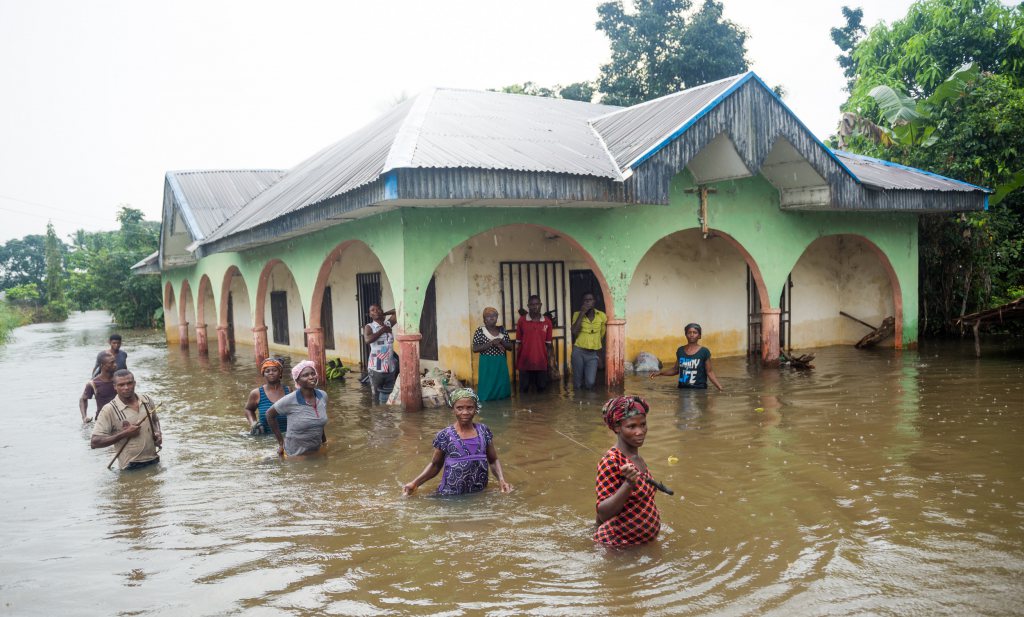The issue of flooding is becoming a frequent occurrence year-in-year-out. Thousands of hectares of farmland have been submerged in floods leading to total loss of crops and revenue for the farmers.
The impact of climate change is more visible in our communities; no longer a mirage or a social media buzz but a reality many farmers live in right now. It is a risk factor to achieving zero hunger. We need to take a more robust approach to reduce its impact on our food security and farmer's livelihood.
The most important question is how can we manage emergencies in the agricultural sector in developing countries? Flooding is a disaster that takes away livelihood and affects everyone especially those in the rural communities where infrastructure support is lacking. Our reactive approach has not helped us in any way but has contributed to more losses and this needs to change completely. There is a need to carry out a robust assessment and develop proactive measures that support farmers who are at risk of flood. This can be achieved through resettlements and provision of financial aids to support their farming businesses. Furthermore, we need more stakeholders to support mobilization of investments for agricultural insurance. So, more insurance policies can be established that protect farmers against losses on the farm as well as the household; a comprehensive insurance that protects farmers against all forms of losses as a result of the impact of climate change. Without sufficient investment, insurance companies might be unable to provide such safety nets to the farmers.
Furthermore, we need more proactive measures from disaster management agencies through early warnings; periodic messages to the public of hot zones especially for the most vulnerable groups. We also need to provide alternatives in case of resettlements, and provide them with financial and psychosocial support throughout the process in order to ease it. We need more proactive measures to disaster management especially as related to flooding, which is one of major risk factors to achieving food security in Nigeria.
In conclusion, if our current approach is left unaddressed, the level of food inflation and insecurity we are faced with would be the least because it would become worse. Therefore, as stakeholders we need to address the issue of flooding (and drought in some areas) and develop a working system; short, medium and long term goals for our food security. No nation solves food security through wishful thinking or complaining of the many ills. So, we need to walk the talk and make sure we don't repeat the same mistakes. Let us count our losses this time and take actions to correct it NOW. NOW is the best time to manage our future disasters.
Yours-in-Service
Babatunde
The most important question is how can we manage emergencies in the agricultural sector in developing countries? Flooding is a disaster that takes away livelihood and affects everyone especially those in the rural communities where infrastructure support is lacking. Our reactive approach has not helped us in any way but has contributed to more losses and this needs to change completely. There is a need to carry out a robust assessment and develop proactive measures that support farmers who are at risk of flood. This can be achieved through resettlements and provision of financial aids to support their farming businesses. Furthermore, we need more stakeholders to support mobilization of investments for agricultural insurance. So, more insurance policies can be established that protect farmers against losses on the farm as well as the household; a comprehensive insurance that protects farmers against all forms of losses as a result of the impact of climate change. Without sufficient investment, insurance companies might be unable to provide such safety nets to the farmers.
Furthermore, we need more proactive measures from disaster management agencies through early warnings; periodic messages to the public of hot zones especially for the most vulnerable groups. We also need to provide alternatives in case of resettlements, and provide them with financial and psychosocial support throughout the process in order to ease it. We need more proactive measures to disaster management especially as related to flooding, which is one of major risk factors to achieving food security in Nigeria.
In conclusion, if our current approach is left unaddressed, the level of food inflation and insecurity we are faced with would be the least because it would become worse. Therefore, as stakeholders we need to address the issue of flooding (and drought in some areas) and develop a working system; short, medium and long term goals for our food security. No nation solves food security through wishful thinking or complaining of the many ills. So, we need to walk the talk and make sure we don't repeat the same mistakes. Let us count our losses this time and take actions to correct it NOW. NOW is the best time to manage our future disasters.
Yours-in-Service
Babatunde
Related



